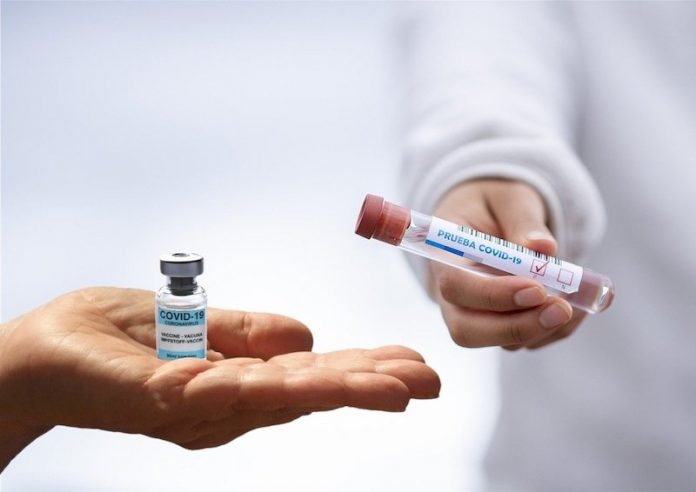
In a new study, researchers found that a single shot of one of the currently authorized COVID-19 vaccines may be sufficient to provide immunity to individuals who have previously been infected by the virus.
This can eliminate the need for a second dose and help to stretch severely limited vaccine supplies. It could also spare these individuals the unnecessary side effects of the second dose of vaccine.
The research was conducted by a team from Mount Sinai.
Two COVID-19 vaccines (Pfizer-BioNTech and Moderna) received emergency use authorization by the U.S. Food and Drug Administration (FDA) in December 2020, and have been administered to millions of people throughout the country.
In Phase 3 trials, both vaccines reported high efficacy in preventing symptomatic COVID-19 infections after two doses given three to four weeks apart.
In the study, the team examined 109 individuals with and without previous SARS-CoV-2 immunity.
They found that the former group developed antibodies within days of the first dose of vaccine at a rate 10 to 20 times higher than those who were uninfected, and at a more than tenfold rate after the second dose.
These findings suggest that a single dose of vaccine elicits a very rapid immune response in individuals who have tested positive for COVID-19.
For that reason, the researchers believe that a single dose of vaccine is sufficient for people who have already been infected by SARS-CoV-2 to reach immunity.
The team also tested systemic reactions after the first dose of vaccine in the second group of 231 individuals, 83 of whom had tested positive for COVID-19, and 148 who had not.
While the vaccines were generally well-tolerated, injection site symptoms—including pain, swelling, and reddening of the skin—were found in both sub-groups.
In recipients with pre-existing immunity, however, side effects occurred with a much higher frequency, including fatigue, headache, chills, fever, and muscle or joint pain.
The intensity of the response to the first dose in people previously infected appears to be similar to the response from people not previously infected after the second dose.
The reason for the stronger response in both groups is likely due to the fact the body has already been “primed,” meaning the immune cells have learned how to recognize the spike protein of the virus—the antigen that forms the basis for vaccination.
These cells thus respond more vigorously, leading to stronger reactions to the vaccine.
The team says if the infection history of an individual is unknown, doctors can use a serological assay to detect antibodies that might exist to the spike protein.
One author of the study is Viviana Simon, MD, Ph.D., Professor in the Departments of Microbiology and Medicine.
The study is published in the New England Journal of Medicine.
Copyright © 2021 Knowridge Science Report. All rights reserved.



